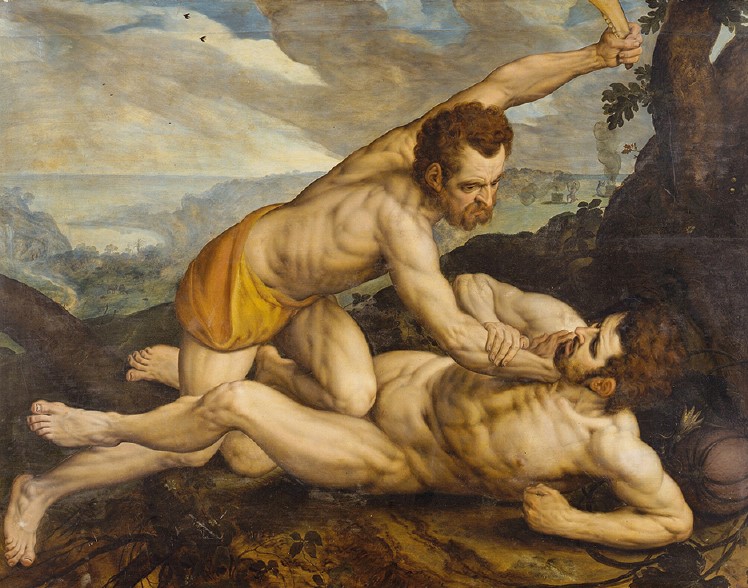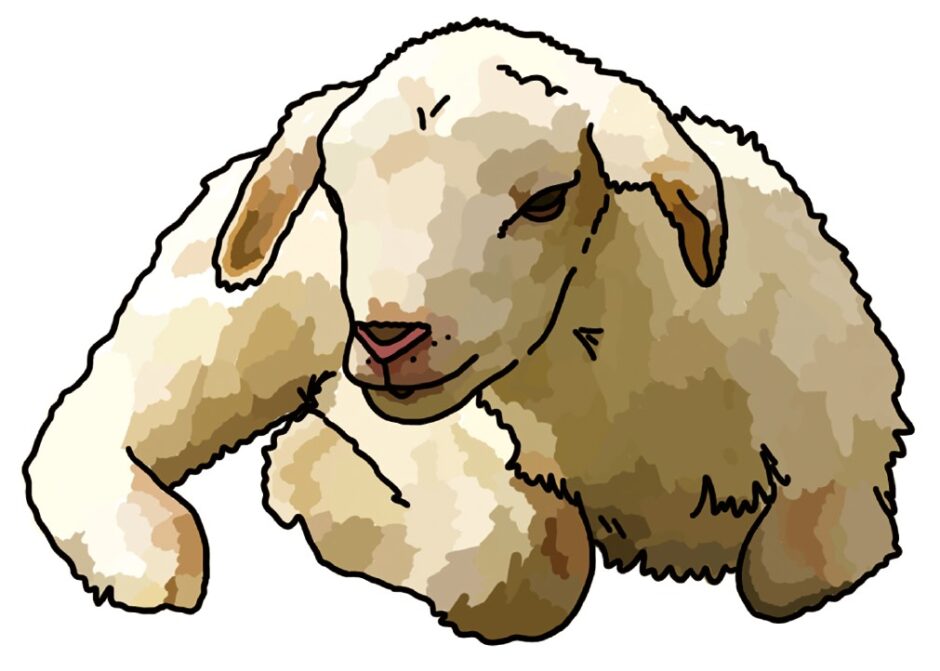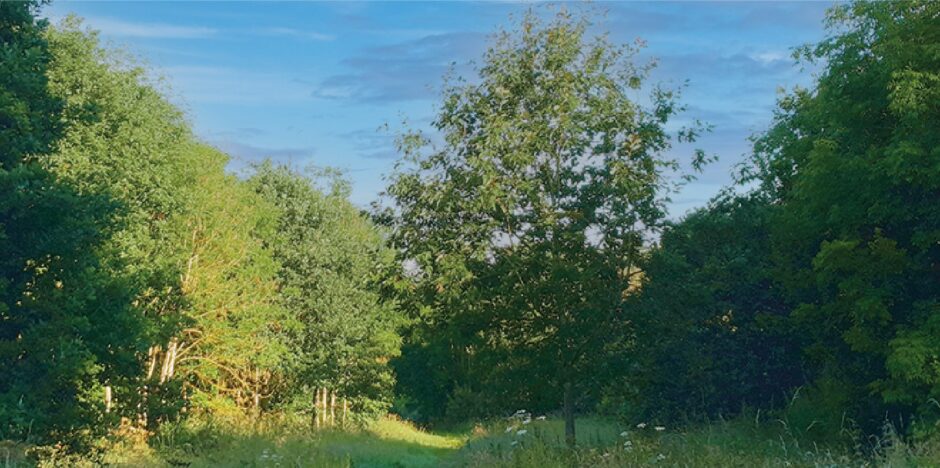The face of the world’s first baby crinkled with laughter, as he cooed and gurgled at his mother. The little boy brought her intense joy, as she marvelled over the perfection of his fingers and tiny toes, and rejoiced in his faltering steps and his mimicry of her voice. Fortunately, Eve knew nothing of the tragedy that would one day pierce her soul. Her lovely Cain would turn out to be the world’s first murderer. Those infant fingers would one day shed blood, and those laughing eyes turn cold. For like every other baby, Cain began innocent. Only as he grew did he reveal the symptoms of that ugly disease of sin. Adam and his wife would recognize, with minds that now knew good and evil, the stubborn, rebellious pride and selfishness in Cain that disrespected God and led him at last to hate his brother.
Abel, Eve’s second son, was different, just as no two children are ever the same. His interests were different, his manner was gentler, and he showed a deep reverence for the Creator. The contrast between the two boys epitomised the difference between sinner and saint, so that they were to become representatives of two classes of humankind. Adam had many other children besides Cain and Abel, as we saw in part 1. That is why he called his wife ‘the mother of all living’ (Genesis 3:20). But the terse record of Genesis, spanning the first 1600 years of human history in five brief chapters, focuses upon these two men. ‘Abel was a keeper of sheep, and Cain a worker of the ground’ (Genesis 4:2).
It was a sensible arrangement to divide the responsibilities, each specialising in his own branch of husbandry. The domestication of cattle and the adoption of a nomadic way of life appear to have been later developments in the history of humanity (Genesis 4:20). The earliest system of agriculture described here—the keeping of sheep in combination together with crop husbandry—conformed with sound ecological principles, and was essentially practical. Sheep yield milk to be drunk or turned into butter and cheese, as well as wool and leather for garments and household goods. They need sensitive and compassionate handling if they are to thrive, a care that Abel was prepared to give. On the other hand, the produce Cain grew would provide energy and vitamins for the growing household. The arrangement worked well, until the day the two boys quarrelled over the offerings. That quarrel ended with the first murder, the first grave, and the break-up of the family home.
The Two Offerings
The record in Genesis at this point is a masterpiece of compression, and unless we follow with care, we may jump to mistaken conclusions.
In the course of time Cain brought to the Lord an offering of the fruit of the ground, and Abel also brought of the firstborn of his flock and of their fat portions. And the LORD had regard for Abel and his offering, but for Cain and his offering he had no regard (Genesis 4:3–5).
On the face of it, we might be disposed to feel Cain was hard done by. After all, he had spent many hours of labour in cultivating those fruits of the ground, and to give them up to God was just as much of a sacrifice as for Abel to offer one of his sheep. Why was God not pleased? The answer is to be found through a close study of the text. The brothers brought their offerings ‘in the course of time’. The original Hebrew literally says “at the end of days”. There may well be a hint here that there was a specially appointed day for offerings. We are told, too, that Cain brought his offering ‘to the Lord’. Where would this be? Again, there is more than a hint here and in what followed, that offerings had to be made in a prescribed place. We are told that Abel brought ‘of the firstborn of his flock’. It was not any old lambs that he brought, but the firstborn from each ewe. Once more, this fits with the laws of offering given later in the Old Testament, where God specially requested the firstborn animal in sacrifice. Finally, Abel offered ‘of their fat portions’. Again, we are forced to conclude that the reason God approved of Abel’s offering was because it was offered in the way that He had asked. Under the Law of Moses, centuries later, the fat, the richest portion of the animal, was to be especially set aside for God:
Then he shall offer from it, as his offering for a food offering to the Lord, the fat covering the entrails and all the fat that is on the entrails and the two kidneys with the fat that is on them at the loins and the long lobe of the liver that he shall remove with the kidneys. And the priest shall burn them on the altar as a food offering with a pleasing aroma. All fat is the Lord’s (Leviticus 3:14–16).
What God Approves
This leads us at once to an important lesson, with grave implications. It emerges, right at the beginning of the world, that God is not always pleased with what we think He ought to like. He requires us to approach Him with great humility, and offer him the sacrifices that He says He wants.
Jesus had much the same teaching. At the judgment seat, he warned, ‘Not everyone who says to me, ‘Lord, Lord’, will enter the kingdom of heaven, but the one who does the will of my Father who is in heaven. On that day many will say to me, ‘Lord, Lord, did we not prophesy in your name, and cast out demons in your name, and do many mighty works in your name?’ And then will I declare to them, ‘I never knew you; depart from me, you workers of lawlessness’’ (Matthew 7:21–23).
Harsh though it sounds, sincerity and good works alone are not enough to merit the approval of God. Saul, king of Israel, considered he was doing God a good turn when he saved alive some of the cattle belonging to the Amalekites which God had commanded him to destroy. He thought they would make a sacrifice with which God would be pleased. But it was a sacrifice that God had not asked for, and the voice of Samuel rang out the doom of Saul: ‘To obey is better than sacrifice, and to listen than the fat of rams’ (1 Samuel 15:22).
Like Adam and his sons, we are all sinners before God. We are in the wrong, and He has laid down the terms on which He is graciously prepared to take us back to Himself. We must be careful to find out what He requires, and bring only this before Him in our worship and our lives.
Sacrifices
We must now consider why God called for sacrifice to be made in a particular way, and indeed why He asked for sacrifice at all. You may well have dismissed the offering of animals as cruel and barbaric, something Christianity has left well behind, and you may be surprised that we should spend time considering it at such length. Jesus Christ, after all, replaced sacrifice for the Christian. In the words of the apostle, ‘by a single offering he has perfected for all time those who are being sanctified’
(Hebrews 10:14). That, of course, is absolutely true. But it provides in a nutshell the answer to our problem. The offering of animals in Old Testament times as a condition for the forgiveness of sins, was to point forward to the way God would at last take away sins for ever through the death of His Son.
The firstborn lamb stood for the firstborn of God: ‘Behold, the Lamb of God, who takes away the sin of the world!’
(John 1:29). The animal’s sudden and ugly death was a grim symbol of Christ’s crucifixion. Human nature would rise up to strike down the perfect man. His life, in all its richness, would be freely given to save friends and enemies from the curse. If sacrifice repels, it underlines the repulsiveness of sin, which festering in the hearts of his enemies brought about the death of the Lamb of God. Christ’s followers are freed from the necessity to purchase lambs to offer to God. But they must still confess and renounce the darkness of their guilt, and praise the love of God in taking it away.
The Cherubim
One last point we can make, reading between the lines of the record. When Adam and his wife had sinned, they were driven from the Garden of God. To seal off the gate, God ‘placed the cherubim and a flaming sword that turned every way to guard the way to the tree of life’ (Genesis 3:24). We are not told what these cherubim were, or what they looked like, but we do find cherubim mentioned later: in the fabric of the tabernacle in the wilderness (Exodus 26:1), and the temple built by Solomon (2 Chronicles 3:14). They were figures woven into the veil that hung from ceiling to floor, barring the way into the Holy of Holies, that inner chamber where stood the ark, the throne of God.
The tabernacle and temple were the centre of worship for the people of Israel. Their sacrifices had to be brought to an altar which was set in front of the door. This is what it says in the book of the Law: ‘If his offering is a burnt offering from the herd, he shall offer a male without blemish. He shall bring it to the entrance of the tent of meeting, that he may be accepted before the Lord’ (Leviticus 1:3).
Putting these facts together, it seems reasonable to conclude that Adam and his family would bring their sacrifices to the gate at the east of the Garden. There they would offer them, in front of the cherubim. They would be able to see, stretching back through the trees, that forbidden path which could restore them to the paradise they had lost, where was the tree of life which could make them live for ever (Genesis 3:22–24).
They would understand that the way which had been forfeited through sin could only be regained through the death of the Lamb, the Son of God. With faith in God’s promise, they could live in hope that one day, by God’s grace, they might share in the victory of their offspring over that of the serpent (Genesis 3:15), and taste the joys of a new fellowship with God.
That hope can be ours. It is Jesus’ own promise. ‘To the one who conquers I will grant to eat of the tree of life, which is in the paradise of God’ (Revelation 2:7). ‘Blessed are those who wash their robes, so that they may have the right to the tree of life and that they may enter the city by the gates’ (22:14).
David Pearce
(to be continued)





